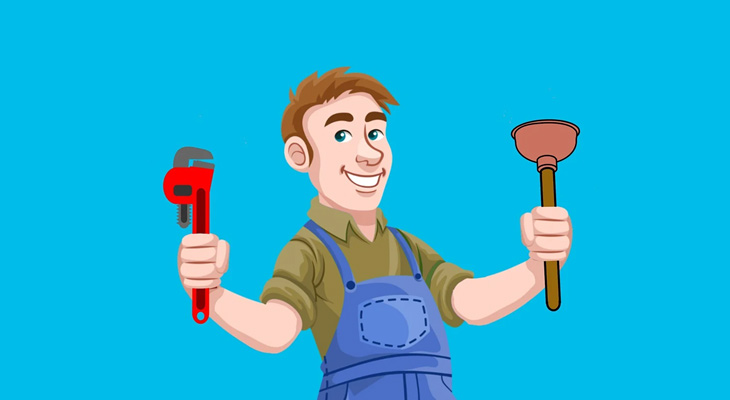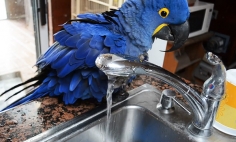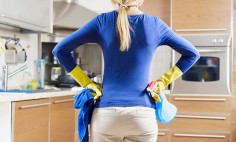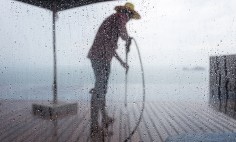There are many plumbing myths which are commonly accepted to be true. Believing these myths can lead you to commit blunders which have expensive consequences.
Since your drains and pipes are at stake, it is important to be educated about what to do and what not to do. Given below are 10 common plumbing myths you need to know.
1. It Is Okay To Dispose Anything In The Sink As Long As It Fits Through The Sinkholes
Unfortunately this is a myth many people believe and they end up with a clogged sink. Food waste is not meant to be disposed of in the sink.
Items like rice, pasta, pulses and seeds go through sink holes but you shouldn’t dispose of them in the sink. If it is done repeatedly, you will end up with a clogged drain which will cost you valuable time and money.

2. Low Water Pressure Is Always Due To Water Shortage
Water shortage can cause low water pressure but it can be caused by other issues as well. If your shower has low water pressure, it might be due to mineral accumulation in your shower head. This can be solved by thoroughly cleaning the shower head.
Closed or partially closed valves in the main water system will not allow the water to pass through effectively contributing to low water pressure. If you can’t figure out why the water pressure is low, call a plumber. If you are in the Charlotte area, you should contact a good plumber in Charlotte, NC.
3. It Is Okay To Flush Sanitary Products Down The Toilet
Sanitary products like pads, tampons and napkins are not biodegradable and will not break down properly in the sewage pipes. It doesn’t matter if they claim to be flushable on the packet.
Flushing one or two might not affect the drain and you will think that it’s safe to continue doing it. Practicing this regularly will lead to clogs and blockages in no time.
4. Drain Clogs Can Always Be Fixed Without A Plumber
Some drain clogs should only be fixed by a plumber. Small clogs can be dislodged by using a plunger or by pouring boiling water in the drain. Some will require you to use a plumbing snake or clean the P-trap.
If none of the above methods work you should call a plumber to look at the clog.
5. Bricks Are The Perfect Way To Save Water While Flushing
A brick might be able to save a small amount of water but they will affect the flushing mechanism and do more damage than good. Bricks were used in earlier years in older toilet models which had larger tanks and consumed more water.
A brick will decrease the performance of your toilet by decreasing the hydraulic pressure.
6. Chemical Drain Cleaners Are Better Than Natural Cleaners
This is absolutely not true. Chemical drain cleaners should be avoided as much as possible. Many people are under the impression that they work better since they contain strong chemicals.
Chemical drain cleaners can cause degradation of pipes and severe burns if you come in contact with them.
7. Oils And Greasy Liquids Can Be Disposed In The Drain Since They Are Liquids
Remember the composition of oils and greases is different from that of water. Pouring oily liquids down the drain can lead to a variety of plumbing problems. It can harden and solidify within the pipes and create clogs and blockages.
8. Faucet Leaks Will Stop After Some Time
Faucet leaks will not stop on their own. Ignoring faucet leaks will lead to a huge loss of water which will later be reflected in your water bills.
It is also commonly believed that faucet leaks will stop if you close the handle tightly enough. This is not always the case. Leaky faucets can be due to worn out cartridges or corroded valve seats which have to be cleaned thoroughly to stop the leak. And if it is irreparable better to replace it with an automatic sensor faucet which helps to save water and your water bills.
9. Medicines Can be Flushed Down The Toilet
Flushing old or unwanted medicines down the toilet might seem harmless. In fact they contain harmful chemicals which will pollute the water and contaminate water bodies.
Majority of waste water treatment systems are not designed to remove these chemicals.
10. Noisy Water Heaters Can Exploed
Noisy water heaters are pretty much harmless. You don’t have to worry about any kind of explosion taking place. The gurgling noises and sounds are due to sediment particles collecting at the bottom of the heater.
When hot water bubbles move through these sediments, it creates strange gurgling noises.
Conclusion
We hope this article will clear up some common plumbing myths and help you understand proper measures that should be taken during plumbing problems. It is always good to implement good habits which will ensure the proper functioning of your drains and pipes.















